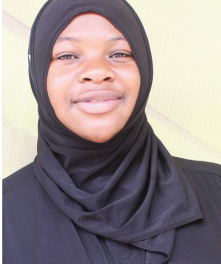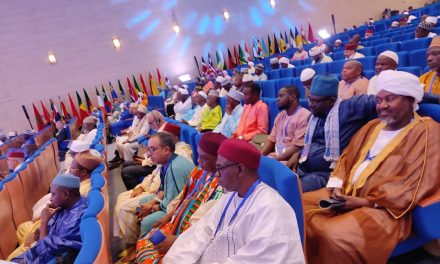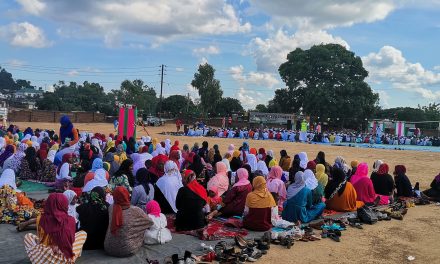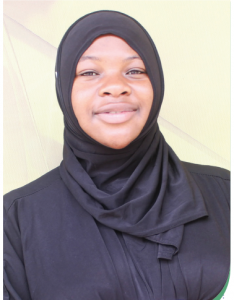
Shariah Supervisory Board (Religious Board)

Islamic financial institutions must adhere to the best practices of corporate governance however they have one extra layer of supervision in the form of religious boards.
The religious boards have both supervisory and consultative functions. Since the Shari’h scholars on the religious boards carry great responsibility, it is important that only high caliber scholars are appointed to the religious boards. An Islamic financial institution is required to establish operating procedures to ensure that no form of investment or business activity is undertaken that has not been approved in advance by the religious board.
The management is also required to periodically report and certify to the religious board that the actual investments and business activities undertaken by the institution conform to forms previously approved by the religious board. Islamic financial institutions that offer products and services conforming to Islamic principles must, therefore, be governed by a religious board that act as an independent Shari’ah Supervisory Board comprising of at least three Shari’ah scholars with specialised knowledge of the Islamic laws for transacting, fiqh al mu`amalat, in addition to knowledge of modern business, finance and economics.
They are responsible primarily to give approval that banking and other financial products and services offered comply with the Shari’ah and subsequent verification that of the operations and activities of the financial institutions have complied with the Shari’ah principles (a form of post Shari’ah audit). The Shari’ah Supervisory Board is required to issue independently a certificate of Shari’ah compliance.
The day-to-day application of Shari’ah by the Shari’ah Supervisory Boards is two-fold. First, in the increasingly complex and sophisticated world of modern finance they endeavours to answer the question on whether or not proposals for new transactions or products conform to the Shari’ah. Second, they act to a large extent in an investigatory role in reviewing the operations of the financial institution to ensure that they comply with the Shari’ah.
The concept of collective decision-making, in other words, decisions made by more than one scholar, is especially important. Shari’ah Supervisory Boards function is to ensure that decisions are not unilateral, and that difficult issues of finance receive adequate consideration by a number of qualified people.
Shaikh Yusuf Talal DeLorenzo, Islamic scholar, position is that unless a financial product or service can be certified as Shari’ah compliant by a competent Shari’ah supervisory board, that product’s authenticity is dubious. At that point, it will be the responsibility of the individual investor or consumer to determine on his or her own that the product complies with the principles and precepts of the Shari’ah.
It is the role of the Supervisory Boards to supervise the activities of Islamic banks. To this end, several of them have drafted out model agreements for the modes of financing mentioned above and the banks concerned are bound to follow these forms in all their transactions.
Whenever a case arises where there are difficulties in applying any of these forms, the management of the bank is expected to bring the problem to the notice of its Supervisory Board, who will look into it, come to a decision and issue a decree (fatwa), which the management must obey. A large number of these decrees now exist, covering many of the current practical problems of Islamic banks.
Because today’s problems do not appear in the original sources of classical Islamic financial law, dealing with problems has required innovative thinking by Supervisory Boards. This sometimes leads to differences of opinion, since the members of the boards specialise in different areas of Islamic learning. These differences are settled by discussion or, if necessary, further research may be undertaken. This process leads to valuable additions being made to the body of the law.
THE IMPORTANCE OF RELIGION IN ISLAMIC BANKING.
Islam is a total way of life. Its system of laws permeates social, economic, political and cultural life. Islamic banks are thus one of the direct consequences of the resurgence of interest in Islam.
The primary source of all Islamic jurisprudence, the body of which is known as the Shari’ah, is the Qur’an and Sunnah. Thus it is the Quranic scholars to whom the leaders of Islamic economics and banking turn for guidance in setting up their internal compliance systems and processes.
CONFORMITY TO THE SHARIAH.
The Advisory Board (also known as the Religious Board) of an Islamic bank looks into the day-to-day running of the bank to check its conformity to the Shari’ah and also decides whether proposals for new varieties of transactions conform to the Shari’ah. It offers constructive advice as to how to address the integration of an Islamic bank’s operations into today’s world of financial information and technology. Bringing uniformity to the practices of all Islamic banks would contribute much to the progress of interest-free banking in the world.
Preferably, members of Shari’ah boards should also have some knowledge about the law system within which their Islamic bank operates.
The Religious Board both protects the interests of investors in ensuring that their profits are legitimate according to the Shari’ah and helps the management to adapt its operations to today’s financial world. The latter role, which is either to issue fatwas (decrees) on specific investment proposals or give precautionary advice, makes it an unwavering foundation supporting the very nature of the Group.
To some it may seem that the role of Supervisory Boards is solely prohibitive in that it proscribes certain forms of activity, yet the part played by them is really one of assistance and contribution. Just as the Shari’ah does not confine itself to what a Muslim may not do, the Advisory Boards of Islamic banks do not limit their role to prohibiting certain transactions, but play a large part in innovation, while still respecting all aspects of Islam itself.
THE INNOVATIVE ROLE OF THE SUPERVISORY BOARD.
It was the ability of religious scholars and Islamic jurors to use the Shari’ah adaptability to develop an alternative to interest-oriented financial transactions that laid the foundation for the first Islamic banks. Islamic scholars and intellectuals from the world of Islamic law worked closely with entrepreneurs, businessmen, prominent Muslims and others and ultimately created a mechanism of finance which was completely different from the West’s interest-based one.
Since the beginning of this alternative financing mechanism, development and refinement have never ceased. The methods and instruments of Islamic finance, being based upon risk and profit-sharing, require an ever-evolving adaptation within the pattern of economic relationships which are defined by the Shari’ah.
The present forms of financial transactions used by Islamic banks, such as mudarabah, musharakah, murabaha, ijarah and ijarah wa iqtina are concepts born of the past thinking of religious scholars and jurists. So while the definition of the Islamic framework of economics does not change, the types of financial instruments required for the survival of Islamic banks necessitates the constant involvement of religious scholars.
The ideal way for Islamic banks and financiers to operate is to set up partnerships with entrepreneurs on a profit-and-loss-sharing (PLS) basis. This avoids the injustice of interest-based transactions, since, by this system, the profits are divided by agreement between the bank, the entrepreneur and the depositor.
For Islamic banks to be able to operate fully according to the Shari’ah, it is necessary for the interest-free Islamic economic system to be recognized by the state. Meanwhile, the Shari’ah Supervisory Boards have allowed the use of two instruments by which Islamic banks can exist in the present conventional banking environment without charging or receiving interest.
These two instruments are cost-plus sales (where the bank buys an asset required by the customer and sells it to him for a profit, by installments) and leasing, which, although not the best Islamic means, are at least acceptable in that they are devoid of interest.
First, cost-plus and leasing can only serve their true purpose if the requirements of the Shari’ah are strictly observed. It must not be merely a matter of new names for conventional transactions. With cost-plus-transactions, there must be a definite period during which the financier is the legal owner, bearing all the risks, liabilities and benefits of that position. He is then the genuine seller of the commodity to the buyer and is entitled to make a profit on the sale.
Second, these two types of transactions are not to be thought of as ideal Islamic modes. On the contrary, the goal of Islamic banks is to move towards PLS modes, that is, musharakah and mudarabah partnerships.
These two instruments have been criticized as being so similar to the interest-based instruments of conventional banks that they have not brought much real change to the banking system and this is true, as far as it goes. Yet their use does carry an element of risk for the financier and it is this element which makes them acceptable to the Shari’ah, for the Qur’an says that “God has permitted trade and forbidden usury” (2:275), and both cost-plus sales and leasing are forms of trade. It is the risk in trading which makes it an acceptable way of making profit. Fixed interest, on the other hand, carries no risk for the bank and is therefore against Islamic principles as a way of making money, since it is the entrepreneur who takes all the risk of loss, while still having to pay back his loan.






























